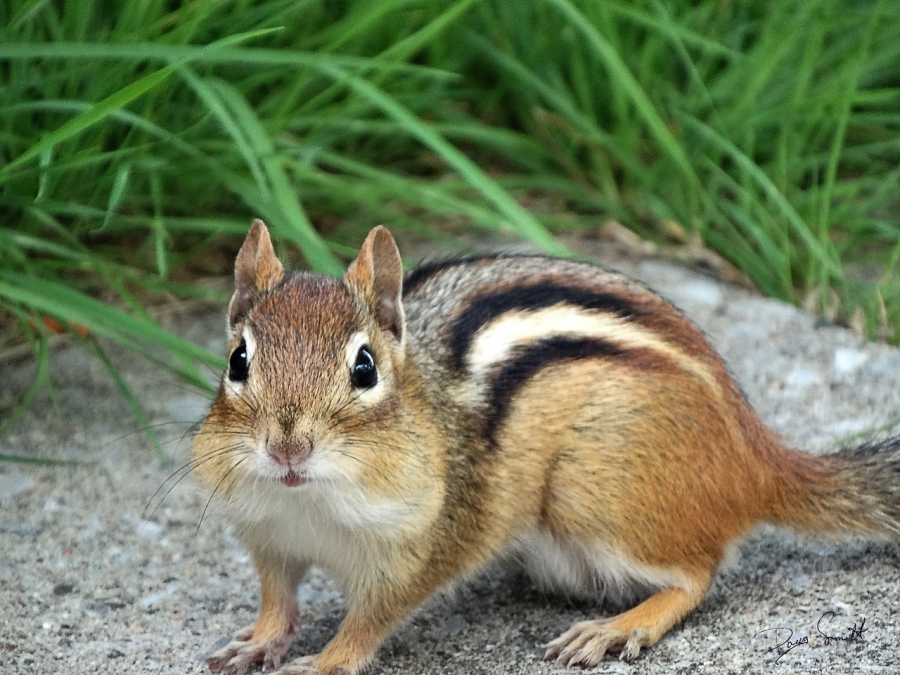
RALEIGH — As of last year, chipmunks in North Carolina were only known to live north and west of Wake County, however, a photograph of a chipmunk residing in Wilmington submitted to the N.C. Wildlife Resources Commission last May peaked biologists’ curiosity. The Wildlife Commission asked for North Carolinians to report observations, and biologists soon realized the mammal’s range had indeed expanded.
“Thanks to reported sightings of chipmunks this past year, we were able to confirm eight new counties for the chipmunk range map. We are excited about these results and want to extend our search,” stated Andrea Shipley, a mammalogist with the Wildlife Commission. “We are specifically interested in sightings from counties east of I-95.”
Chipmunks are found in both urban and rural habitats. The eastern chipmunk prefers open woodlands or forest edges, with plenty of cover and dry hillsides for digging burrows. The chipmunk is most active in early morning and late afternoon, gathering and storing seeds, nuts, acorns and berries. Unlike squirrels, chipmunks spend most of their time foraging on the ground, climbing trees only occasionally.
Chipmunks have distinctive coloring — reddish brown fur, a black stripe down the center of its back and a set of two black stripes. They are smaller than squirrels, measuring eight to 10 inches long, including three to four inches of tail. The chipmunk’s most distinguishing feature is its large cheek pouches, usually full of nuts or seeds to unload in an underground storage burrow.
Burrows provide protection from predators such as hawks, owls, foxes and snakes, and safe quarters during winter months, when cold weather brings on a state of deep sleep.
If you live in a county east of I-95 and observe a chipmunk or its habitat, please take a picture, note the location (GPS coordinates preferred) and contact the Wildlife Commission’s NC Wildlife Helpline, Monday through Friday, 8 a.m.–5 p.m., at 866-318-2401 or email HWI@ncwildlife.org.



